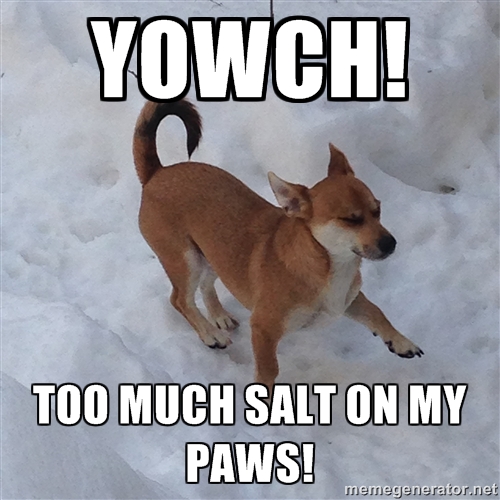
Did you know using too much salt and other ice-melting chemicals can hurt pet paws? Smart use of deicing products can also help minimize impacts on our watersheds.
If you're the kind of person who thinks about the health of our urban watersheds, you've probably wondered if using too much salt on driveways and sidewalks can hurt Philly's rivers and creeks.
As snow piles up in the winter, we often turn to salt or other solutions to melt snow and ice as an important public safety measure that saves lives on our roadways every year.
Still, it's important to know that all deicers can be harmful to our water supply, the environment and even pets when overused. The best strategy is to read the labels and use as directed only when needed.
High concentrations of salt can damage and kill vegetation and harm freshwater ecosystems and fish. Excess salt can also seep into the ground and destroy soil structure, which can lead to erosion and further pollute waterways.
And, those heaps of caustic rock salt on sidewalks can also irritate sensitive pet paws, making a winter wonderland walk post-snowstorm much less fun for dogs like Shorty, seen at top.